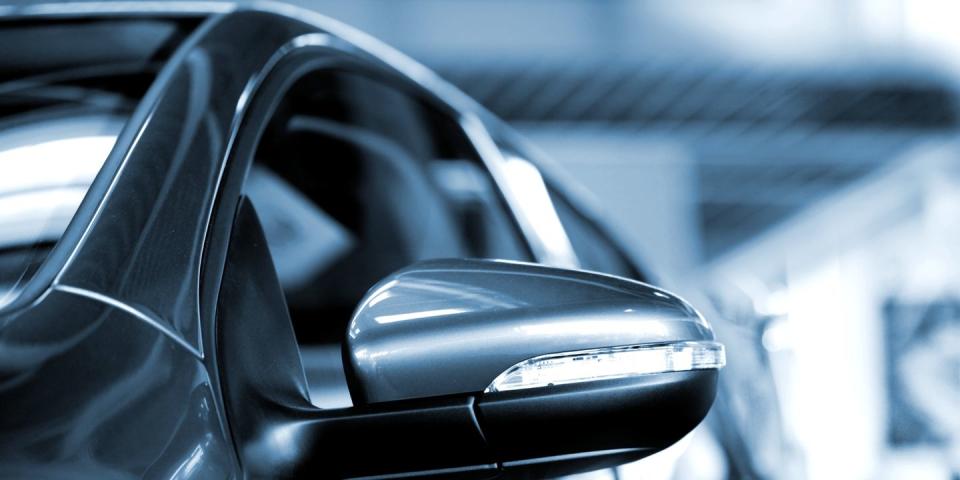Why Are Lease Buyout Rates Higher? Learn How to Save Money with the Lease Buyout Process

If you're in need of a vehicle, you can choose between leasing and buying a car, and the decision often comes down to personal preference based on multiple factors. You might not have considered leasing a car before, but it actually has numerous benefits, and many people enjoy the excitement of driving a new car every few years.
When you lease a car, you're essentially renting the vehicle for a certain period of time. Once you've finished with the lease terms, you return the vehicle to the dealership. If it fits into your budget and lifestyle, you can lease cars for as long as you want.
Looking for a lender to help with an auto loan after a lease buyout? Compare lenders to see which one works best for you.
To lease a car, you make an upfront payment to cover some of the leasing transaction costs, and then you pay the monthly amount in the lease agreement. After you sign the contract, you're committed to its terms, including making the payments, staying under the maximum mileage, and treating the car with care to avoid excess wear-and-tear fees.
Leasing a car is ideal for people who don't drive a lot of miles, love driving new cars with advanced technology, and aren't looking to own a vehicle outright. But what happens if you aren't happy with the terms of the lease or the leasing fees after you've signed the contract?
What if you want to eventually own a car and stop making lease payments? Are you planning on taking road trips with your family that can eat up mileage?
If any of these factors come into play while you're driving a leased car, consider a car lease buyout. Speak with your lender to learn what the lease buyout rates are, why they are higher than a traditional loan for a new or pre-owned car, and whether or not you can negotiate the buyout fees.
What Is a Car Lease Buyout?
A car lease buyout is when you purchase your leased vehicle at the end of your leasing period (or beforehand if you want to terminate the lease early) rather than returning it. It is one of a few options you can take when your lease ends:
Return the leased vehicle for another one. If you enjoy leasing a car, you can return the vehicle to the dealership at the end of the lease agreement time frame. You then choose another vehicle to drive, pay the associated fees specified in the contract, and drive away. You'll make the monthly payments and abide by the rules of the lease agreement.
Go to another dealership after the end of the lease. You can simply turn in your leased vehicle, pay any outstanding fees, and walk away. You can go to another dealership if you want to lease a new car or get a loan to purchase a pre-owned or brand-new vehicle.
Work with the lender for a car lease buyout. If you decide to keep the car, work with your current lender to get a lease buyout loan. You can also shop around for other lenders to see if you can get a better interest rate or lower monthly payments.
Many people who drive extended miles, want to make changes to the vehicle, or just love the leased car they've been driving will choose a lease buyout.
What Is the Process for a Vehicle Lease Buyout Loan?
A lease buyout loan is an end-of-lease option to purchase the vehicle you've been leasing. Toward the end of your lease term, your lender will send you information on the lease buyout option process, including the residual value of the car.
The residual value is a calculation the lender makes to determine how much you would have to pay to own the car at its current value.
If you decide to purchase the car, talk with your lending company or dealership about getting a lease buyout package. You'll want to know the rates for the buyout loan so you're not surprised by the final dollar amount. Ask for all fees and costs associated with the end-of-lease buyout loan before choosing a lender.
Don't be afraid to bargain over the interest rates and monthly payment costs with your lender. A lease buyout loan is different from a lease contract. With a lease buyout loan, you can negotiate the terms of the loan, and if your financial situation changes in the future, you can refinance the loan. With a lease contract, once you sign the agreement, you must abide by its rules and policies, which are nonnegotiable.
Why Are Lease Buyout Rates Higher?
There are several reasons why lease buyout rates are higher. The interest rates of lease buyouts are normally higher than on a new car loan, and if you have a poor credit score (under 580), your interest rates will be even higher.
In addition, in recent years, the demand for leased cars has risen among consumers. Due to supply and demand issues, many lenders will raise the fees of lease buyouts to offset the cost of having to sell the leased vehicle as a used vehicle.
Factors to Consider with a Lease Buyout Loan
While it may seem like a breeze to get a lease buyout loan, especially if you have good credit, you'll want to consider a few factors:

 Yahoo Autos
Yahoo Autos 